
Advice From Grad Students, to Grad Students
Reposted with permission from Mary Madera. This was originally posted to the Plantae Student Space Network for the Graduate Perspectives Collection. See original posts here.
Everyone has vastly different experiences and expectations for grad school, even from one year to the next. Here, grad students at the University of California, Davis and University of California, Berkeley were asked to briefly share their current reflections so fellow students can learn from their mistakes, commiserate with their struggles, and celebrate our collective resilience. We heard from first, second, third, fourth, and fifth years and postdocs. We are all unique, but we are never isolated.
First Years
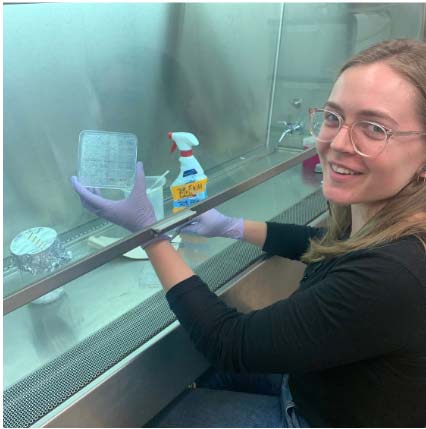
“My name is Elli, and I love plants and math – so I'm a first year plant biology PhD student at UC Davis! I'm currently rotating through four labs for about a month each. At the end of rotations, I'll pick one lab to join. Just like grad school interviews, rotations have exposed me to some brilliant scientists, methods, and ideas; there's a difficult decision to make in my near future. The rotation process has been surprising in good ways and has taught me a few things about my own lab preferences. I'd advise looking at rotations as an opportunity to spend time doing the most interesting research on your campus. If you're in the process of grad school application now, I'd suggest coming up with a mental list of labs where you'd want to spend five weeks, and let your excitement about those lists inform your decision.” Elli Cryan is part of the Plant Biology Graduate Group at UC Davis focused on quantitative plant biology. You can contact her at epcryan@ucdavis.edu.
“As a first year, there is a lot of change and things to get used to with the transition into graduate school, especially knowing I'll be staying here for around 5 years. It took a lot of adjusting to get used to a class style that engaged you beyond memorization and asked you to reach beyond what is stated in the papers or books. Some of the best advice I got was that you aren't expected to do anything revolutionary in your first year and to make sure you have a life outside of science. There's always this frustrating feeling that you have so much more to learn to get up to the level of those around you and knowing you're here to get to that level, not because you're expected to be there already helps. It also helps to have interests and comforts outside of the lab and classroom. I've grown and learned a lot since starting my PhD and it hasn't all been in the lab.” Lorenzo Washington is in the Plant and Microbial Biology department at UC Berkeley focused on plant and microbial interactions. You can contact him at lorenzo_w@berkeley.edu or on Instagram at swanky_kid.
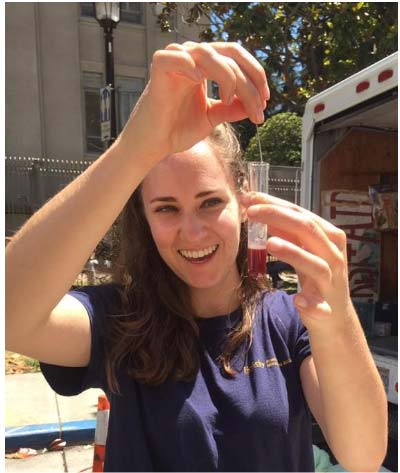
“Most of my expectations were spot on: coursework, rotations, available resources, etc. But I was not expecting my cohort to have such diverse educational backgrounds, which is a great thing. We all bring very different experiences to classes and labs, and I find that encouraging. It relieves the pressure to fit in some box of "plant biology graduate student" and helps combat imposter syndrome. We’re all here to learn totally new skills and concepts, so don't for a second freak out because you've never done PCR or bioinformatics or learned plant morphology, or whatever. In the same token, take some risks with rotations; don't let your lack of skills in one particular field stop you from rotating in a lab that really interests you. I did, and may have sacrificed my opportunity to join a project I'm really excited about because every skill required is unfamiliar. I came here to learn new things yet let my fear of not knowing something hold me back, which is just silly.” Mary Madera is part of the Plant Biology Graduate Group at UC Davis focused on plant genetics and secondary metabolism. You can contact her at mamadera@ucdavis.edu or on Twitter @_marymadera.
“If you have a research topic that your advisor has set up for you (or you are adding to another's project), the best way to find your own direction is to read current publications. Sounds obvious, but it can be very easy to become completely engrossed in your research without doing outside reading (e.g. if you are doing endless data collection without any prior thought to what the outcome of this data could be). Also learning to code in R helps with data analysis and data visualization. There are plenty of online resources to help you with that and the earlier you learn, the earlier you have more control over your project (mostly biology related advice).” Guy Robinson is in the Plant Pathology department at UC Davis focused on characterizing fungicide resistance. You can contact him on Twitter @_GnRobinson.
“I was a nervous wreck when I was starting my lab rotations at the beginning of my first quarter. I had to go from not touching a pipette in my last year and a half of research to pretending to be functional in a molecular biology lab on day one. Making matters worse, my first rotation was the lab I wanted to join the most. I had convinced myself that I needed to put on a good show to make myself look like I was worth mentoring. Sadly, there was no good show; my rustiness at the bench couldn’t have been more clear…and that was okay.
I learned from my mistakes, worked hard, stayed active, and connected with the lab along the way. I screwed up a lot and still managed to leave a good impression on the lab – a feat I would have thought impossible in the time before that rotation.
Coming into graduate school, many people will tell you not to fret about the skills that you don’t have, but rather to enter with a mindset for learning and change. If I could go back and tell myself one thing before starting my graduate program, I would have told myself to heed their words. My first rotation professor put it brilliantly: 'We’re not concerned so much about hard lab skills. We can teach those. It’s much harder to teach work ethic, passion, and persistence.'” Cody Bekkering is part of the Plant Biology Graduate Group at UC Davis focused on agricultural biotechnology.
Second Years
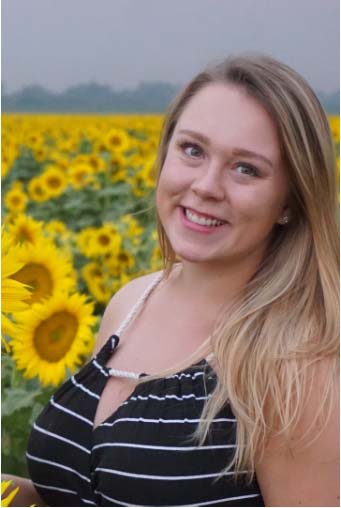
“Your first year of grad school is all about getting a handle on the process and acclimating to academia. In my second year, I knew I would need to do more but I didn't expect to have to double my productivity. Coursework becomes less important and producing research becomes the focus. While not taking classes with my cohort-mates, social relationships have waned. Setting priorities and self-management have become so important. I admire my labmates who consistently encourage and model work-life balance. I try to take direction from them.” Linsey Mooney is in the Psychology department at UC Davis focused on memory development in children. You can contact her on Twitter @Linz_Mooney.
“It's really easy to over commit in grad school. Everything sounds exciting and like a really good opportunity to learn something important, make valuable connections, etc. You can drive yourself absolutely crazy trying to make it to everything and do everything. You have to remember that you're not less of a person or a worse student for not showing up to an academic (or social) event. I'm not saying don't go to things, or don't go to things that are outside of your discipline, but remember that sometimes by doing everything and trying to learn everything, you stretch yourself so thin that you can't learn anything! I guess what I'm saying is that it's important to remember that you're a whole human in grad school and that you can (and should) advocate for and take care of yourself!” A student in the Plant Science department at UC Davis focused on coffee plant nutrient management.
“One thing I wish I had known sooner is to ask a lot of questions. There is so much that I don't know, but there are people around who do know. There are many times I was struggling with something in lab, and just tried to work harder and push through. But I now realize that instead I should have asked someone who knows what they are doing for help or advice. Simply asking someone would have saved me a good deal of time and effort that could have been better spent elsewhere. In asking, you only risk a bit of embarrassment, but the potential benefits are huge.” Alex C. is a student in Plant Biology at UC Davis focused on crop plant biochemistry.
Third Years

“I have run into many people who said 3rd year was their ‘most depressing’ year of grad school, and I've certainly felt the same is true for me (possibly a self-fulfilling prophecy). At any rate, I was totally exhausted after quals, and found third year was the time where both the emotional and intellectual demands of grad school really kicked up a notch. To any new grad student, my advice is: follow the science! If you stay in this field you will 100% encounter crummy PIs, funding issues, unreliable collaborators, and unfortunate accidents no matter how hard you try to avoid them. The only solid thing you will always be able to count on is the science. Read papers you love and let them inspire you. Practice designing your own experiments. Trust your instincts, set boundaries, and don't be afraid to defend your ideas. When you are doing science you care about, all the other challenges become a lot more manageable.” Virginia is in the Joint Genome Institute Plant Functional Genomics Group in the Plant and Microbial Biology department at UC Berkeley. She is focused on the genomics and evolution of polyploid plants.
“As all PhD students, I love learning and research. Yet, I am slow at developing ideas, understanding implication, and writing. Further, I do not have the intense passion that allows me to spend every waking moment on my thesis. This year I have realized that my advisor will always want me to be a top student, yet my past attempts to fulfill these expectations had left me depressed and following research plans that were no longer exciting as they felt unachievable. I have become a happier individual and a more motivated and productive student through re-setting my standards and accepting that I am a thoroughly below average student (that I will publish less, that I will win fewer fellowships, that I won't have time to do all of the side projects or analyses that my peers do) – and there is nothing wrong with that! I will still have a PhD.” C. is a student in the Evolution and Ecology department at UC Davis.
“The 3rd year was what I was really expecting when I imagined what a PhD program would be like; with a thorough proposal in hand and the resources ready it was finally time to jump headfirst into research! However, there have been countless hiccups, and projects that I wanted to get off the ground this past summer are still in the process of being prepared. This year has taught me to be patient, to find successes in my work (however small), and not to compare myself to the standards of others. Science is so variable, it's a waste of energy trying to see how you stack up! And even though I was told this almost obvious fact countless times before, I finally understand what it means when people say a PhD is a marathon and not a sprint. Surround yourself with a supportive community and keep taking it one step at a time!” Dhruv Patel is a member of the Niyogi lab in the Plant and Microbial Biology department at UC Berkeley. He is focused on improving high light tolerance and photosynthetic efficiency in crops. You can contact him at dpp47@berkeley.edu.
“What I did expect about this year: preparing for my QE would be hard. What I have not expected about this year: post-QE is perhaps even harder. It turns out that when you build habits for 3 months prepping for the QE, it feels great to study all the time and there's a strong sense of purpose. But afterwards, I've been surprised by how tough it is to rewire myself to have a normal life again. I wish I had known to set lower academic and personal expectations for myself for after my QE. The most helpful thing has been to decide that "health and happiness" deserve to be real goals, equal with my academic ones, and that they're worth the time and the energy.” Katherine Corn is in the Evolution and Ecology department at UC Davis focused on macroevolution and biomechanics in fish. You can contact her at kacorn@ucdavis.edu or on Twitter @damalichthys.
Fourth Years
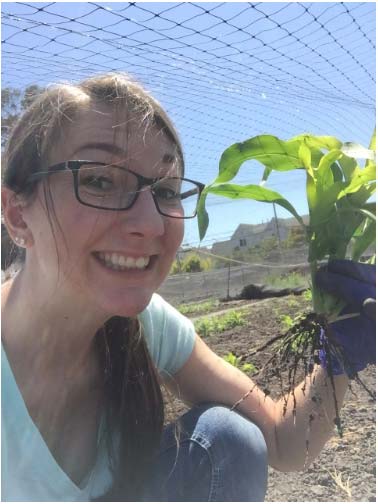
“As a 4th year, I feel like the imposter syndrome has set in a lot more heavily than in previous years. I'm a "senior grad student" now, so I feel like I should've done a lot more to get to this point. However, something I've learned is that everyone's graduate experience is different. We all experience failures and setbacks, and we all go through the post-quals slump (yes, that's a thing.) Something I didn't expect about this year is the looming realization that I only have a short amount of time left here, and I need to prioritize what experiments I want to do!” Tuesday Simmons is a member of the Coleman-Derr and Arkin labs in the Plant and Microbial Biology department at UC Berkeley. She is focused on plant-microbe interactions and microbial ecology. You can contact her on Twitter @tuesdays314.
“What has surprised me about my fourth year of grad school is how much I know. Grad school has been all about learning what I don't know. Now that I'm a ways in, I finally feel like I'm an expert in my project and competent in the field. This time is like another world from my first and second years that were dominated by coursework and learning techniques. My advice to past me: Get organized, and keep chugging!” Katie Murphy is a student in the Plant Biology department at UC Davis focused on diterpenoid biosynthesis and the maize stress response. You can contact her on Twitter @GMOhmygod.
Fifth Years and Beyond
“This year has been incredibly unstructured compared to the previous stages of my degree. I was lucky enough to have funding that allowed me to wind down my outside obligations and focus in on the dissertation and career development. So I haven't been TAing, teaching, working in the lab, or mentoring undergraduates for a few months. All of my time and energy has been committed to data analysis, writing, editing, and applying to jobs. I'd highly recommend this approach if you can find funding to keep you going through the last quarter or two of your dissertation! I have a hard time focusing on writing if I have other tasks available to distract me; it has to be my top priority. I'm surprised by how open-ended this period is, in terms of how someone finishes their research and finishes writing the dissertation. There are very few defined guidelines or expectations, so it's hard to know when to call something complete. The best advice I can give is to impose your own structure; set a writing schedule, with word or page minimums every day, and stick to it! Add in whatever incentives it takes to make that work for you. And optimize your work; find the best location, time of day, caffeine level... it all helps. I'm about where I expected to be, but it's hard to say until I actually finish the writing!” Nikki Soltis is a student in the Plant Sciences department at UC Davis focused on the quantitative genetics of a generalist plant disease, Botrytis cinerea. You can contact her on Twitter @nic0lise.
“I'm currently in my 6th year, and am not at all where I expected to be when I started grad school. My lab has changed, my research has changed, and my career path has changed. It's really important to realize that what you do today may not be what you're doing tomorrow and that that's okay! You will get through it. This year in particular I established some really good habits that I wish I'd established sooner. I write at least half an hour every day, something I suggest to every graduate student I talk to - ALWAYS be writing! This can be writing for a paper or thesis, yes, but could also be for a grant, a scientific blog post, a recap of a meeting, or just a brain dump. Just get into the habit of daily writing. Grad school is a marathon, not a sprint, so make sure you're proactive about your self care and sleep hygiene. I also started meditating regularly in the last year, which has done wonders for my motivation and focus, and I track my time, which helps me be realistic about my daily objectives and improves my time management. A last practice I've adopted in the last year that has been helpful is, when I'm about to switch away from a certain task, jotting down my current train of thought/where I plan to go next. This way, when I come back to that task in an hour, day, week...I have some guidance on where to start back.” Rayne Logsdon is in the Animal Behavior Graduate Group at UC Davis focused on behavioral ecology. You can contact her at rlogsdon@ucdavis.edu.
Postdocs
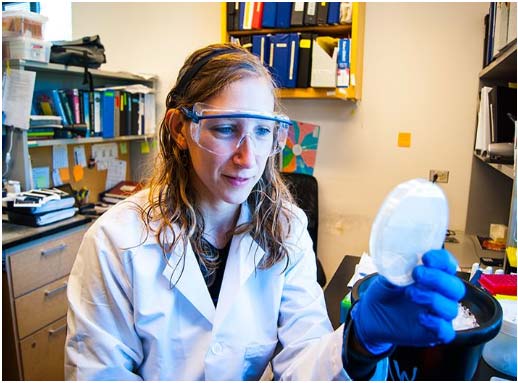
“At this point – as a postdoc – I should have known that everything in research takes longer than expected. But it seems I forgot that all important lesson once again. If I could give myself from a year ago advice, I'd reinforce that researching tough topics is, well, tough, and that doing a good job takes time. But it's so much better to do it right than to do it quickly.” Becky Mackelprang is a postdoc in the Lemaux lab in the Plant and Microbial Biology department at UC Berkeley focused on genome editing in agriculture. You can contact her on Twitter @BMackelprang.
Thank you to SciSays, the CLEAR Project, and ESTEME for their help in the creation of this post.
Mary Madera is a graduate student in the Plant Biology Graduate Group at University of California, Davis. For more content from the UC Davis science communication group "Science Says", follow us on Twitter @SciSays.

Comments